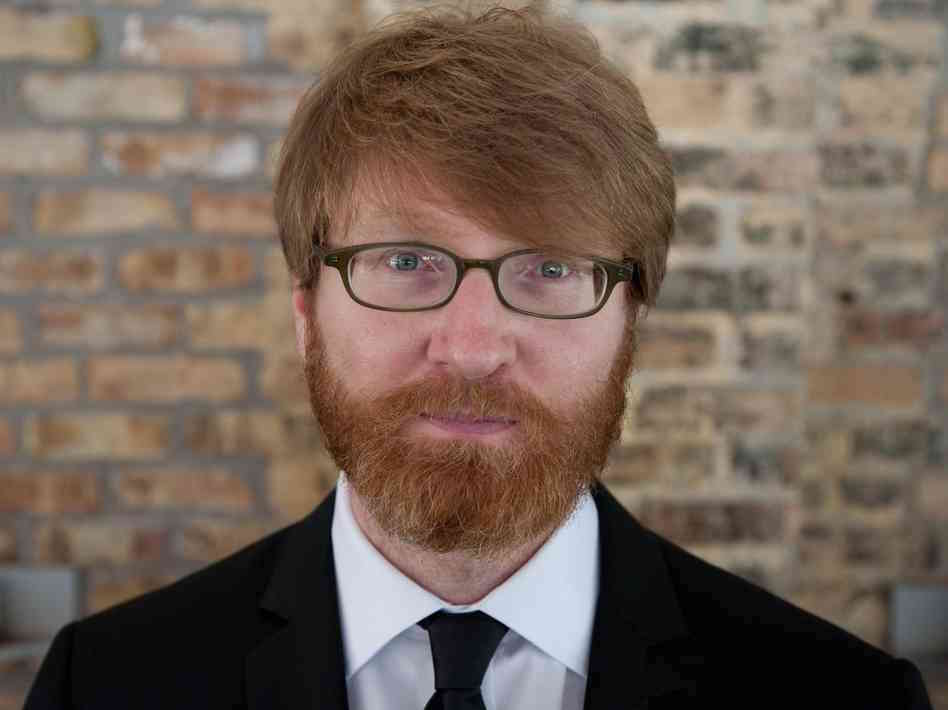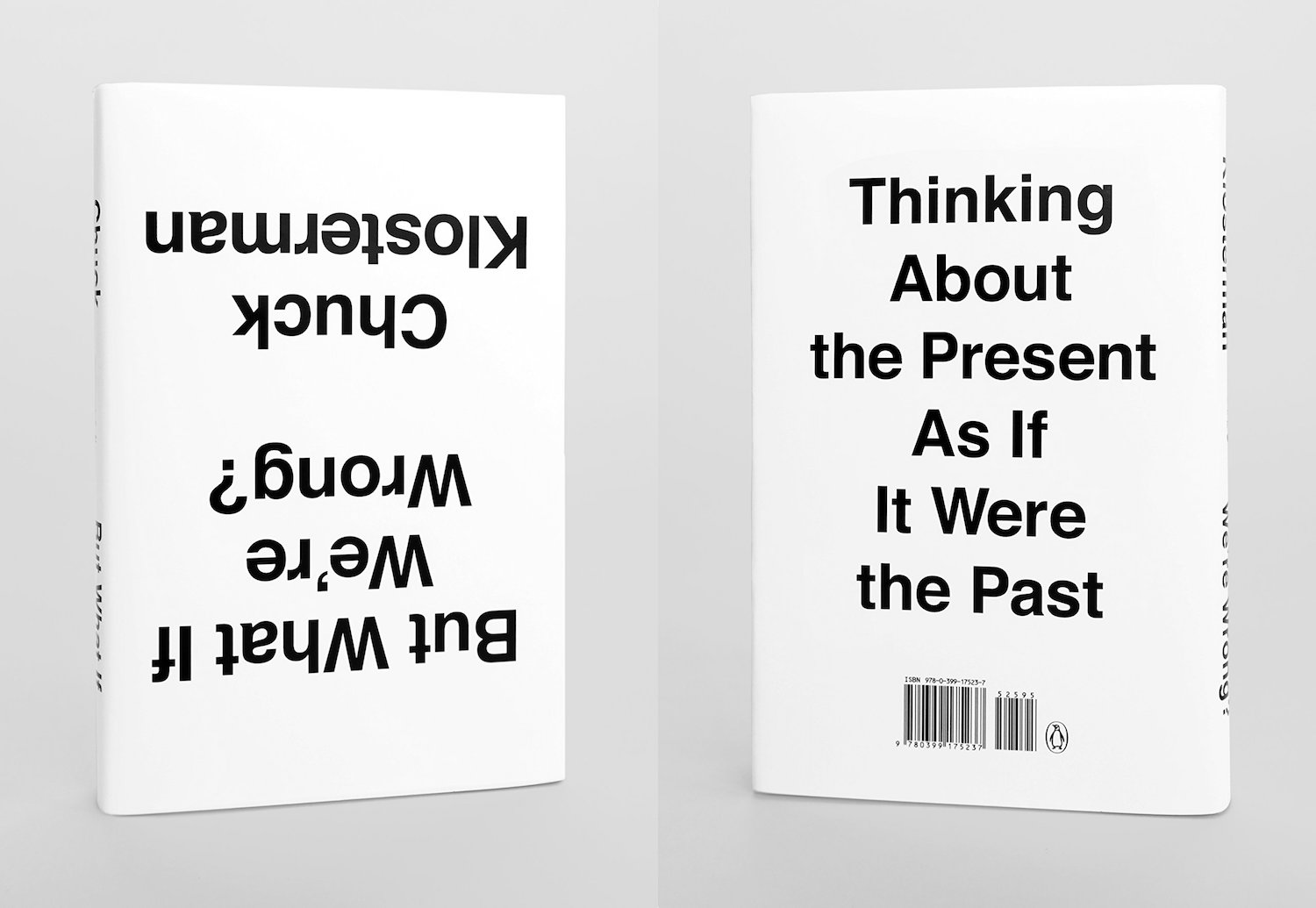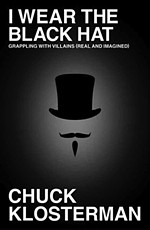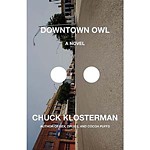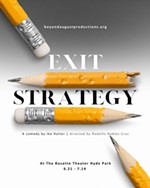The Present in the Past Tense
Chuck Klosterman talks about what now will look like later
By Rod Machen, 1:00PM, Mon. Jun. 27, 2016
Austin’s coolest customers showed up at BookPeople on June 16 to listen to Chuck Klosterman, a man who's made thinking deeply about pop culture his mission. Before the event, Klosterman chatted with the Chronicle about his latest book But What If We're Wrong?: Thinking About the Present as If It Were the Past, TV, and our town itself.
[On Austin]Chuck Klosterman: Austin’s my favorite U.S. city that’s not in North Dakota. I love it here. I would love to move here. Granted, my experience here often was tied to first going to SXSW and then coming here for book tours. So I’m going here in situations that are fun, but I just feel like this is a nice place to live. And I have to admit, I wonder if in a way it was because I liked Austin before I was ever here because I was so into the movie Slacker. Actually, the Austin that I experience doesn’t really seem like the Austin from that movie.
I’m not the kind of person who goes around saying, “This record changed my life” or “This book changed my life,” but that film did sort of change my life. I can’t think of many things that reinvented the way I think about culture as much as that film did. So it was almost ingrained into me. Every place in America is one of two ways: “It used to suck here, but now it’s great,” or “It used to be great here, and now it sucks.” Nobody ever says, “This is just how it is.” The present never matters to people in any city. It’s always that it is somehow recovering from, or it is nostalgic for, the past.
[On modern television being an image-driven affair]
CK: I suppose you could argue that the best television now sort of replicates the best of film from the Seventies where that was part of it. Where you might see a movie like Klute or the first Godfather movie. You might not necessarily remember all of the details of the story, and if somebody said, “Explain what happens,” it might be difficult, but there are specific scenes you remember, lines of dialogue you really remember. That’s part of it.
I think that television just got more sophisticated, kind of in every way. Visually, but also narratively. I think the main thing it did is – shows like Breaking Bad or Lost or The Sopranos – replaced the reading of novels for a lot of people. The kind of person in the Seventies or Eighties who might read a novel a month, because they want to have one experience where they can be immersed in a story, and then also think about that story when they’re not experiencing it. Television kind of does that.
When you say that, people get very upset. One, because it’s kind of a cliche, but another because it seems to indicate that reading doesn’t matter anymore. I understand that. Certainly as a writer, I want people to read books, but people want to feel like there are fictional worlds that interlock with their life. I don’t know that that’s necessarily worse if it’s a passive relationship like television as opposed to an active relationship like reading. People are tired; they work all day.
[About his newest work]
CK: In some ways, the subtitle is the book. What I’m trying to do is think about the contemporary world the way it will appear to people in 100 or 300 or 1,000 years, because the way we look at day-to-day life is so different than the way we look at history. So what I’m trying to do is use the structure and the mechanisms we use to think about the past and apply it to now, so that instead of, when you’re looking at something like television, for example, in the present tense, when we think of television, the main criteria we’re using for what’s good is: “How entertaining is it? How well made is it? How cool is it? How hip is it? How much is it attached to how life feels?” But when we think about television from the past, we’re really talking about questions of importance in terms of what it’s reflecting in the culture that’s unseen, the authenticity of the ideas and how we can understand the past through what people liked.
So that’s what I’m trying to do with things now. Some of the book is about the idea of things that we’re wrong about. If feels very plausible that the things we view about the world right now are inevitably going to be proven false. The history of ideas is the history of people being wrong. Now, it’s not a book of predictions; I’m not saying “We’re wrong, but I’m right.” It’s more like an attempt to say “We need to accept the possibility that our view of reality is false." And if we have a false view of reality, what are alternative ways to think about it?
A note to readers: Bold and uncensored, The Austin Chronicle has been Austin’s independent news source for over 40 years, expressing the community’s political and environmental concerns and supporting its active cultural scene. Now more than ever, we need your support to continue supplying Austin with independent, free press. If real news is important to you, please consider making a donation of $5, $10 or whatever you can afford, to help keep our journalism on stands.
Tim Stegall, Aug. 15, 2014
March 10, 2024
Chuck Klosterman, But What If We're Wrong?, Slacker, Austin, BookPeople





